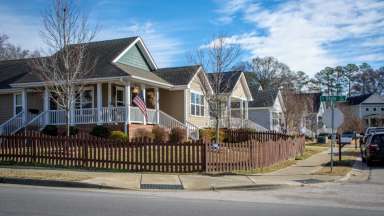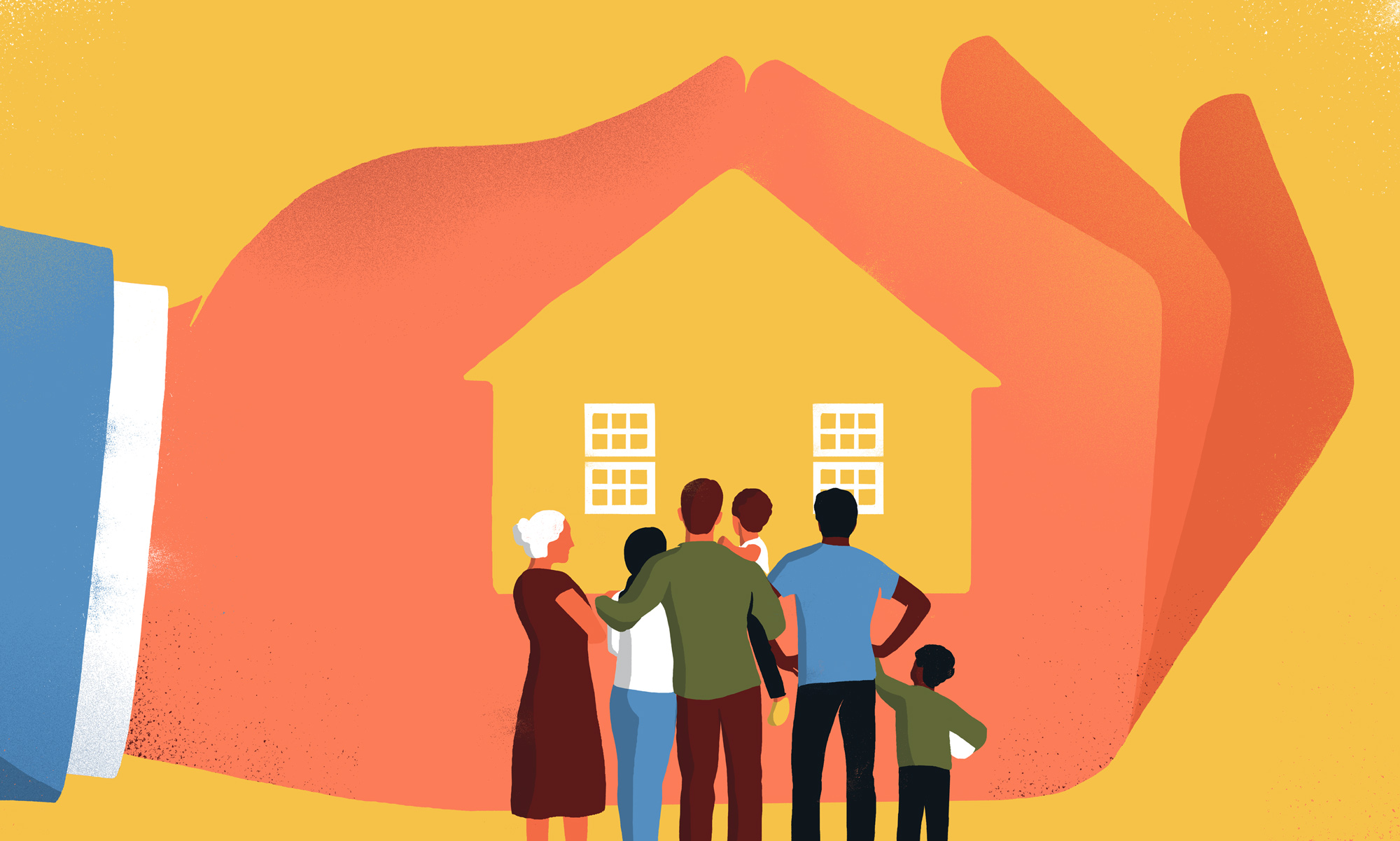Why Affordable Homeownership is Achievable for More People
Why Affordable Homeownership is Achievable for More People
Blog Article
Affordable Homeownership Options for First-Time Homebuyers
As the real estate market proceeds to evolve, first-time homebuyers encounter one-of-a-kind challenges in safeguarding economical homeownership alternatives. Numerous sources, consisting of entitlement program programs, low-down-payment home loans, and targeted grants, have arised to minimize economic pressures. These initiatives not just facilitate homeownership yet likewise foster community security and economic development. Nonetheless, browsing these choices can be complex, and understanding which paths are most helpful calls for mindful consideration. What strategies can prospective homeowners employ to maximize their possibilities in this landscape?
Government Assistance Programs
Entitlement program programs play a crucial function in making homeownership possible for lots of individuals and family members. These programs intend to reduce the financial burden connected with buying a home, especially for first-time buyers. By using economic help, gives, and tax obligation motivations, federal government initiatives assist link the gap in between increasing housing expenses and the buying power of prospective homeowners.
Various programs are readily available at the government, state, and neighborhood degrees. For circumstances, the Federal Housing Management (FHA) gives insurance policy on lendings, allowing lenders to offer more positive terms, such as reduced down repayments and minimized rates of interest. In addition, state and regional federal governments typically have their own efforts, which may consist of deposit assistance programs, homebuyer education and learning courses, and beneficial mortgage terms.
These programs are developed to resolve the distinct obstacles encountered by reduced- to moderate-income families, including restricted cost savings and credit rating. By promoting an atmosphere where homeownership is a lot more obtainable, government help programs not just sustain specific aspirations however additionally add to area stability and economic development. Comprehending and utilizing these resources can considerably improve the potential customers of successful homeownership.
Low-Down-Payment Home Loans
For numerous hopeful house owners, low-down-payment home mortgages present a practical pathway to homeownership, specifically in today's difficult housing market. These home mortgage alternatives normally call for down settlements ranging from 3% to 5%, making it simpler for new buyers to enter the market without the burden of saving for a substantial down repayment.
Various loan providers offer low-down-payment programs, consisting of standard lendings backed by Fannie Mae and Freddie Mac, as well as government-backed alternatives like FHA fundings. These home loans are created to accommodate individuals with limited cost savings while still giving affordable rate of interest. Importantly, they permit purchasers to preserve more cash money for other necessary expenses, such as moving expenses, home assessments, and potential renovations.
However, potential house owners ought to bear in mind the trade-offs associated with low-down-payment home loans. A smaller deposit may cause higher month-to-month repayments and the requirement of exclusive home mortgage insurance policy (PMI), which secures loan providers in case of default. It is vital for first-time buyers to conduct extensive research study and consult with mortgage experts, ensuring they pick a low-down-payment choice that straightens with their long-lasting economic objectives.
First-Time Buyer Grants
Lots of newbie property buyers find that gives can substantially reduce the economic burden of acquiring a home, enhancing low-down-payment mortgage options. These grants, typically supplied by state and charitable organizations or neighborhood federal governments, supply economic help that does not call for repayment, making them an attractive choice for those getting in the housing market.
Eligibility for novice buyer gives usually relies on revenue, credit reliability, and the acquisition cost of the home. Lots of programs are designed to assist low- to moderate-income family members, ensuring that assistance gets to those who require it most. The application process commonly includes documentation of monetary condition, homebuyer education programs, and sometimes even a commitment to remain in the home for a particular duration.
The quantity of help differs extensively, with some grants offering several thousand dollars to help cover shutting prices or deposits. Looking into readily available gives in your area is essential, as programs frequently alter and might have details demands. By leveraging these monetary resources, first-time homebuyers can make homeownership a lot more available, ultimately accomplishing their imagine owning a home while alleviating the preliminary monetary stress.
Innovative Area Efforts
Innovative neighborhood efforts are playing a vital role in broadening budget friendly homeownership choices for residents. These campaigns often entail collaborative initiatives in between city governments, charitable companies, and private market stakeholders to produce sustainable real estate services customized to neighborhood needs.
One noteworthy technique is the facility of community land counts on (CLTs), which permit homeowners to purchase homes while the land continues to be had by the depend on. This design assists maintain cost with time and protects against speculative cost rises. Furthermore, CLTs typically offer educational resources and assistance solutions to empower new buyers.
An additional efficient effort is the advancement of mixed-income real estate tasks, which mix budget friendly devices with market-rate homes. This strategy cultivates inclusive communities and decreases the stigma commonly connected with low-income housing. Local federal governments are increasingly sustaining zoning reforms to promote the construction of accessory residence devices (ADUs), which can give extra rental income for property owners while increasing housing availability.

Tips for Budgeting and Saving

Following, establish a committed interest-bearing account especially for your future home purchase. Aim to conserve a percentage of your income constantly, preferably 20% anchor or more, to develop a considerable down settlement. Use automation devices, such as straight deposit or automated transfers, to make saving less complicated and more consistent.
Furthermore, take into consideration embracing the 50/30/20 guideline: designate 50% of your revenue to needs, 30% to wants, and 20% to financial savings and financial debt payment - Affordable Homeownership. This technique advertises well balanced financial wellness

Final Thought
In summary, budget friendly homeownership alternatives for first-time property buyers encompass numerous sources such as government aid programs, low-down-payment you can try here mortgages, and grants. By leveraging these economic tools, individuals can navigate the intricacies of homeownership, inevitably contributing to a more fair housing landscape.
As the real estate market continues to progress, newbie homebuyers face distinct challenges in protecting economical homeownership options. By fostering an atmosphere where homeownership is a lot more accessible, federal government help programs not just sustain private ambitions yet also add to neighborhood security and financial development. By leveraging these financial sources, first-time property buyers can make homeownership more easily accessible, eventually attaining their dream of owning a home while minimizing the preliminary monetary strain.
In recap, cost effective homeownership choices for first-time homebuyers incorporate different sources such as federal government assistance programs, low-down-payment home mortgages, and gives. By leveraging these monetary tools, people can navigate the intricacies find out here now of homeownership, ultimately adding to an extra equitable real estate landscape.
Report this page